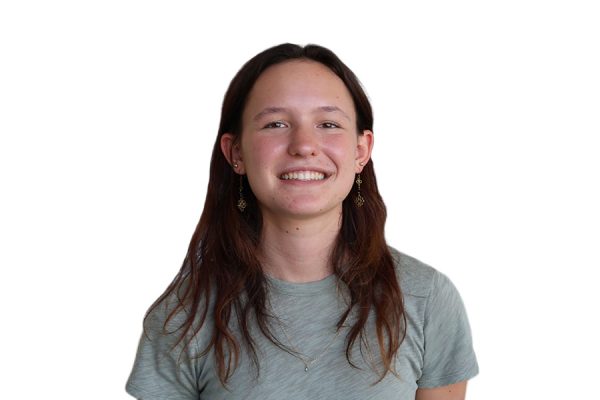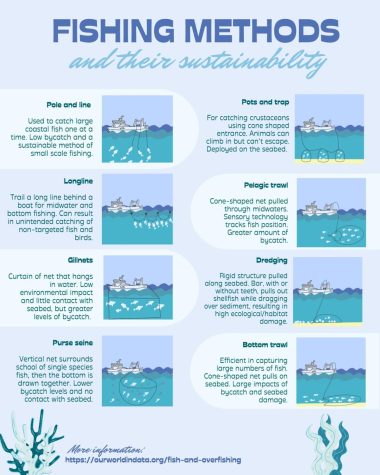
X: @lucyyas_
November 8, 2022
Sustainable fishing is defined by the Food and Agriculture Organization of the United Nations (FAO) Code of Conduct for Responsible Fisheries as protecting marine fauna, or animals, by using selective methods and avoiding waste. All of these specifications are meant to respect and protect marine ecosystems.
Protecting marine fauna means the company utilizes fishing methods that adapt to the population increase rate of certain species.
Using selective methods prevents the occurrence of bycatch, and the practices reject the capture of endangered species or those that serve no commercial value to the company.
John Mellor, a commercial fisherman in San Francisco, utilizes a pots and trap method for catching crabs, but his traps are different from others in the industry.
“My traps have an escape ring, so the females and undersized crabs can get out because we can only keep the crabs that we sell,” Mellor said.
The practice of only aiming to catch targeted species is what makes local fishing more sustainable.
Mellor uses a longline method which entails numerous short lines attached to hooks which are then attached to the main line. This method is considered environmentally friendly because it does not harm the seabed, though it may result in capturing some non-targeted species. Although, local fishermen like Mellor throw any bycatch they collect back into the ocean.
Protecting marine fauna also means fishermen are not fishing in protected waters or in the same place too frequently.
“If we overfish then we fish ourselves out of a job. Part of it’s just not going to the same spot over and over again,” Mellor said. “A big part of it is the diversity to be able to switch from the different fisheries and having the experience and knowledge of how to do so.”
However, the sustainability of fish that are imported to the U.S. is often difficult to determine.
“Over 80% of the seafood consumed in the U.S. is imported from overseas,” Hutt said. “While seafood produced overseas can also be sustainably managed, in many cases it is not. That said, with today’s supply chains, there is no guarantee that seafood sold at local stores and restaurants will be domestic or locally sourced seafood.”

Fishing is closely monitored in local waters by NOAA, which uses data from electronic monitoring, surveys, and observers to inform stock assessments, which are then used to determine annual catch limits.
“NOAA Fisheries’ Office of Law Enforcement works closely with state enforcement officers and the U.S. Coast Guard to enforce all fisheries regulations,” Hutt said.
Supporting local businesses is a great way to ensure the catch was sustainable from water to table.
“If people dynamite the reefs, or if they catch the last living fish somewhere in some other part of the country, there’s very little I can do about that; I probably wouldn’t even know,” Mellor said. “But I know that if I go to Tokyo Fish or Berkeley Bowl — a piece of local seafood — I know where it was caught, and I know that it was sustainably managed.”
